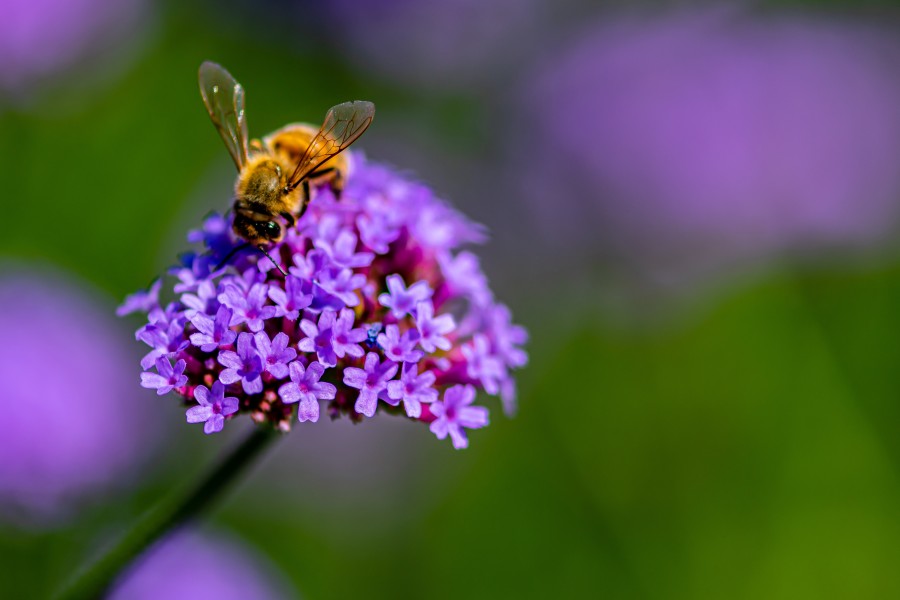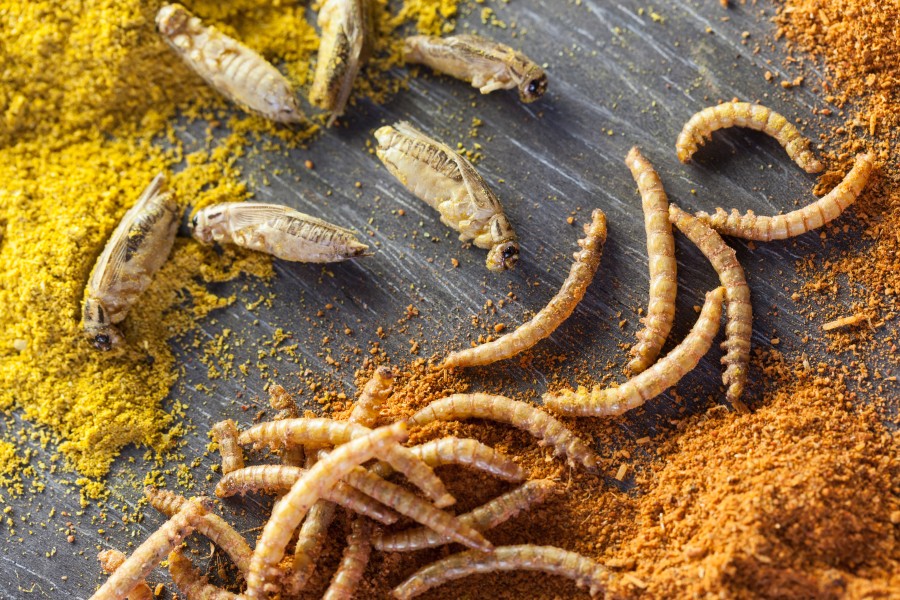
- Industry news
Industry news
- Category news
Category news
- Reports
- Key trends
- Multimedia
- Journal
- Events
- Suppliers
- Home
- Industry news
Industry news
- Category news
Category news
- Reports
- Key trends
- Multimedia
- Events
- Suppliers
Insect farming scrutinized: New study casts doubt on alternative protein’s credentials
Research concludes that insect farming’s impact on the food system’s sustainability is far less positive than initially promised
Key takeaways
- New research challenges insect farming’s green reputation, showing it may be less sustainable than conventional protein sources when scaled.
- Biosecurity and ecological risks are significant, with escaped farmed insects potentially disrupting native ecosystems and spreading diseases.
- Low consumer demand and weak regulation undermine viability, as insect-based foods rarely replace meat and face acceptance barriers.

New research undermining the sustainability case for insect farming reveals a catalogue of findings that it is far less environmentally friendly than originally thought, and raises concerns over its biosecurity risk and disease spread.
The report challenges insect farming’s suitability as a viable protein for feed and food sectors for various reasons, including GHG emissions, and its realistic uptake as an alternative protein for food products, given very low consumer acceptance.
In stark contrast to claims made by insect protein companies, the study found that insect protein produced at scale is, in most cases, less environmentally-friendly than conventional ingredients across multiple metrics.

It also highlights that high numbers of escaped insects and a lack of regulation on biosecurity measures mean that insect farming could pose a serious risk to natural environments and threaten native species. They could transmit diseases and pathogens, including novel strains, to wild populations, including threatened pollinators like bumblebees.
Co-author of the report, executive director of the Insect Institute, and affiliate instructor at the School of Interdisciplinary Arts and Sciences at the University of Washington Tacoma, Dr. Dustin Crummett, claims that insect protein has been “widely hyped over the past decade,” adding that this comprehensive review of the scientific literature tells a different story.
Insect protein benefits exaggerated?
Crummett explains to Food Ingredients First how the findings show that there is essentially no public demand for farmed edible insects, and farming insects for pet food or farmed animal feed can be, at times, worse for the environment than conventional options.
We also speak with lead author Corentin Biteau of the French National Observatory on Insect Farming.
“The most surprising finding was that, although insects are often said to be more sustainable than meat, the vast majority of companies are not trying to replace meat because of low consumer acceptance. Worse, for the human food market, approximately 90% of insect-based foods do not replace meat. Instead, they replace plant-based products like bars, snacks, and pasta, which have a smaller environmental impact,” Bitaeu explains.
“Another issue is the low use of waste. While there is a narrative that the industry can contribute to a circular economy, large-scale farms rarely use genuine food waste. This is due to regulatory restrictions, sanitary risks, logistics, or nutritional variability, which are the same barriers that prevent feeding waste to conventional livestock.”
Instead, major producers use grain co-products like wheat bran, meaning insects compete directly with traditional livestock for feed rather than creating a circular system. Escaped insects and a lack of biosecurity regulation regarding insect farming could increase the risk of diseases and pathogens being transmitted to wild populations.
Escaped insects and a lack of biosecurity regulation regarding insect farming could increase the risk of diseases and pathogens being transmitted to wild populations.
Biosecurity and disease-spread concerns
Two factors stand out as especially concerning for Crummett.
“The resource-intensive nature of contemporary insect farming is concerning. Factors like high energy use and the use of high-value feeds for insects, which are themselves used as feed, call into question both the environmental sustainability and the economic viability of the industry.”
While insects generally do use fewer resources than conventional animal products, he explains that this is true of essentially all protein sources, and is not relevant when insects are instead competing with lower-impact ingredients like soy meal or the byproducts on which pet food heavily relies.
“The biosecurity risks from pathogen or parasite spread, and the spread of invasive or pest species, are posed by the escape of farmed insects or the improper disposal of diseased insects. While these risks have been raised in the scientific literature for years, the industry has essentially ignored them, and meaningful measures to control these risks remain essentially non-existent.”
Crummett also addresses the investment that has already gone into the insect farming sector.
“The industry is asking for fewer regulations when, based on the biodiversity risks and other uncertainties identified through this research, policymakers should in many areas be increasing regulations,” he continues.
“When it comes to public investment, governments should be aware of the industry’s shortcomings in the context of sustainability. If the goal is to invest in solutions that will deliver on a more sustainable farming system, large-scale insect farming is far from fulfilling its promises.”
“Further, the economic viability of large-scale insect farming remains questionable, especially in regions like the US and Europe, and large amounts of money have been lost backing companies with defective business models.”
“These might include things like plant-based meat, single-celled proteins, or cultivated meat, or efforts to promote plant-based eating.”
Biteau flags that current regulations are poorly equipped to manage risks. “Critically, there are no regulations to prevent insect escapes or address them after they occur.”
“There is a notable absence of regulatory policy guidelines for biosecurity at rearing facilities. European Commission experts acknowledge an ‘overwhelming lack of knowledge concerning almost every aspect of production.’” Insect-based foods rarely replace meat and face acceptance barriers.
Insect-based foods rarely replace meat and face acceptance barriers.
Insects for feed and pet food markets
Crummett believes the insect feed industry must stop marketing itself as a sustainable solution to the problems raised by conventional pet food and feed ingredients, since the existing data does not support such claims.
“The same is largely true for insects intended for human consumption that do not compete with meat (such as insects-based pasta, chips, or baked goods). Insect companies have long compared the environmental impact of their products to beef and other high-impact animal products, and these comparisons have been used to charge sustainability-minded consumers a premium.”
“But these comparisons are only relevant when farmed insects are replacing these products, which in practice they almost never are.”
He believes the insect farming industry could improve its sustainability profile by focusing on production methods, such as incorporating greater use of organic waste as insect feeds or use cases (e.g., insects as meat substitutes), which improve its sustainability profile.
“However, I caution that there are practical difficulties here, which is why the industry, for the most part, has not already done it.”
The peer-reviewed research, “Have the Environmental Benefits of Insect Farming Been Overstated? A Critical Review,” authored by an international team of academics from the UK, US, and Europe, has been published in the scientific journal Biological Reviews.












